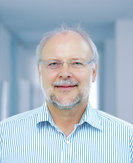mosaik A framework for modular simulation of active components in Smart Grids
Motivation
In future Smart Grids, large numbers of heterogeneous components – distributed energy resources (DER), intelligent electronic devices (IED) and advanced power grid equipment such as FACTS – will have to interoperate in order to optimize their operation and provide a reliable and sustainable electricity supply. Next to the interaction of energy systems and ICT, interdependencies exist with market systems, consumer behavior and environmental influences. Simulation is an important tool for understanding the complex interactions between the interconnected elements and actors of Smart Grids. Furthermore, the simulation of Smart Grid scenarios allows for efficient and rapid evaluation of novel control strategies and technologies. This way, real-world experimentation can be systematically prepared, drastically reducing the costs and necessary effort for laboratory and field experiments.
Complex, interdisciplinary simulation requires the collaboration of various domain experts, which complicates the choice of a single modeling tool for the whole system. Furthermore, monolithic simulation setups typically display little flexibility and maintainability. An alternative approach is given by the coupling of various simulation tools in the context of a co-simulation. However, direct model coupling can lead to a high manual effort in the interface development, making the process rather error-prone. In addition, the developed approaches are usually problem-specific and can hardly be adapted for new application cases.
The mosaik project therefore aims to develop a framework that allows the semi-automatic creation of a Smart Grid co-simulation based on the reuse of existing, heterogeneous models. Mosaik supports common programming languages and simulation tools as well as relevant standards of the domain like Functional Mock-Up Interface (FMI) and OPC Unified Architecture. For flexible usage of the simulation a formal description of analyzed scenarios exists, allowing for comfortable co-modeling of test setups. Furthermore, mosaik serves as a virtual extension of the OFFIS SESA-Lab, bridging the gap between software and hardware-based testing.
This way, the mosaik co-simulation environment allows inexpensive and flexible testing of novel technologies and concepts for the Smart Grid, paving the way to their actual implementation in the field.
Further information can be found at mosaik.offis.de
Scientific Director
Schütte, Steffen and Scherfke, Stefan and Tröschel, Martin; 12 / 2011
Okko Nannen, Klaus Piech, Sebastian Lehnhoff, Sebastian Rohjans, Florian Schloegl, Jorge Velasquez, Filip Andren, Thomas Strasser; 41st Annual Conference of the IEEE Industrial Electronics Society; 11 / 2015
Schütte, Steffen and Scherfke, Stefan and Sonnenschein, Michael; Proceedings of SMARTGREENS 2012 - International Conference on Smart Grids and Green IT Systems; 005 / 2012
Schütte, Steffen and Sonnenschein, Michael; 12 / 2012
Scherfke, Stefan; The Python Papers; 007 / 2012
Schütte, Steffen and Rohlfs, Henning and Nieße, Astrid and Rohjans, Sebastian; 11 / 2013
Rohjans, Sebastian and Lehnhoff, Sebastian and Schütte, Steffen and Scherfke, Stefan and Hussain, Shahid; 10 / 2013
Kosek, Anna Magdalena and Lünsdorf, Ontje and Scherfke, Stefan and Gehrke, Oliver and Rohjans, Sebastian; Power Systems Computation Conference; 05 / 2014
Scherfke, Stefan; 10 / 2013
Sebastian Lehnhoff, Okko Nannen, Sebastian Rohjans, Florian Schlögl, Stefan Dalhues, Lena Robitzky, Ulf Häger, Christian Rehtanz; IEEE Workshop on Modeling and Simulation of Cyber-Physical Energy Systems; 04 / 2015
Florian Schlögl, Sebastian Rohjans, Sebastian Lehnhoff, Jorge Velasquez, Cornelius Steinbrink, Peter Palensky; International Symposium on Smart Electric Distribution Systems and Technologies; 09 / 2015
Martin Büscher, Klaus Piech, Sebastian Lehnhoff, Sebastian Rohjans, Cornelius Steinbrink, Jorge Velasquez, Filip Andren, Thomas Strasser; 24th IEEE International Symposium on Industrial Electronics; 06 / 2015
Mario Faschang, Friederich Kupzog, Edmund Widl, Sebastian Rohjans, Sebastian Lehnhoff; IEEE Workshop on Modeling and Simulation of Cyber-Physical Energy Systems; 04 / 2015
Sebastian Rohjans, Sebastian Lehnhoff, Steffen Schütte, Filip Andrén, Thomas Strasser; IEEE 23rd International Symposium on Industrial Electronics; 06 / 2014
Sebastian Rohjans, Sebastian Lehnhoff, Cornelius Steinbrink, Jorge Velásquez; 7th Real-Time International User Conference; 06 / 2014
Sebastian Rohjans, Edmund Widl, Wolfgang Müller, Steffen Schütte, Sebastian Lehnhoff; at – Automatisierungstechnik; 04 / 2014
Martin Büscher, Arno Claassen, Matthias Kube,Sebastian Lehnhoff, Klaus Piech, Sebastian Rohjans,Stefan Scherfke, Cornelius Steinbrink, Jorge Velasquez, Francois Tempez, Yahia Bouzid ; 5th IEEE International Conference on Smart Grid Communications; 11 / 2014
Dede, Jens and Kuladinithi, Koojana and Förster, Anna and Nannen, Okko and Lehnhoff, Sebastian; arXiv preprint arXiv:1509.03067; 2015
Steinbrink, Cornelius and Blank-Babazadeh, Marita and El-Ama, André and Holly, Stefanie and Lüers, Bengt and Nebel-Wenner, Marvin and Ramírez Acosta, Rebeca P. and Raub, Thomas and Schwarz, Jan Sören and Stark, Sanja and Nieße, Astrid and Lehnhoff, Sebastian; Applied Sciences; 2019
Ofenloch, Annika and Schwarz, Jan Sören and Tolk, Deborah and Brandt, Tobias and Eilers, Reef and Ramirez, Rebeca and Raub, Thomas and Lehnhoff, Sebastian; 2022 Open Source Modelling and Simulation of Energy Systems (OSMSES); 2022
Adelt, Fabian and Barsanti, Matteo and Hoffmann, Sebastian and Sarma, Debopama Sen and Schwarz, Jan Sören and Vermeulen, Ben and Warendorf, Tom and Binder, Claudia and Droste-Franke, Bert and Lehnhoff, Sebastian and Myrzik, Johanna and Rehtanz, Christian and Weyer, Johannes ; Advances in Social Simulation; September / 2023
Duration
open

